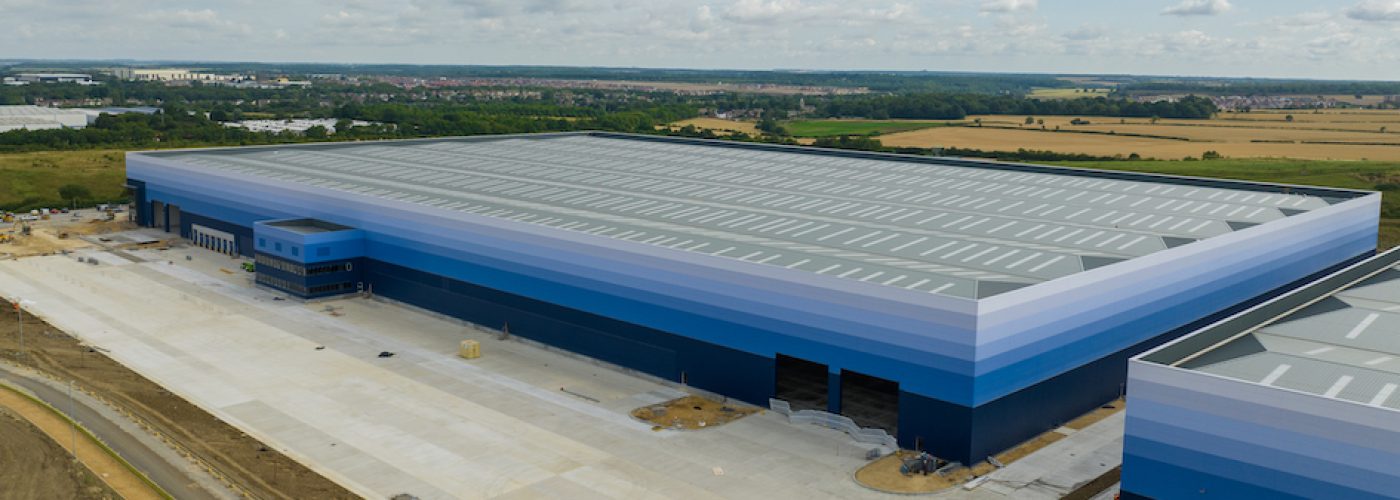- VolkerFitzpatrick’s proactive approach to addressing fuel wastage has resulted in a best practise approach in the use of generators in the construction industry.
- Through insights provided by Invisible Systems, the company successfully implemented measures to reduce fuel waste by a third (34%).
VolkerFitzpatrick, one of the UK’s leading engineering and construction companies, has successfully reduced fuel wastage by a third (34%) on its Magna Park construction site in Corby, Northamptonshire. This remarkable achievement was made possible through the installation of fuel monitoring systems provided by Invisible Systems, a leading Manchester-based Internet of Things (IoT) solution provider. Following the highly successful trial, that also resulted in considerable savings in costs and reductions in carbon emissions, the monitoring systems have been permanently implemented and usage recommendations have been shared across other divisions within the VolkerFitzpatrick business portfolio.
Magna Park in Corby, Northamptonshire is one of the UK’s largest dedicated logistics and distribution parks, with VolkerFitzpatrick responsible for construction. Invisible Systems’ intelligent I-System monitoring solution was installed, to deliver data and insights on energy usage on site, together with the company’s energy management system Eco Lync. Eco Lync intelligently switches off your non-essential assets when the demand for energy spikes, subsequently reducing carbon emissions and saving on business costs.
VolkerFitzpatrick was then able to analyse the performance data from the systems to identify unnecessary fuel usage, with a focus on reducing fuel wastage. This in turn, led to the implementation of a range of improvements both on site and to their supply chain to ensure the plant is performing at its most optimal. One example of this is the monitoring discovered that there were more than 300 litres of fuel being used over the weekend when nobody was on site. Therefore, the on-site team, with the support of Invisible Systems’ partner Sunbelt Rentals optimised EcoLync to ensure all power to the heating and hot water would be switched off during evenings and weekends.
During the trial phase, VolkerFitzpatrick saved an average of 550 litres of fuel per week and reduced on-site weekly fuel consumption by 34%, driven by a massive 89% reduction in overnight fuel usage and a 40% reduction in weekend fuel consumption. This led to a financial saving of hundreds of pounds weekly and a substantial weekly carbon reduction of 1.26 Tonnes of CO2e.
Following the trial, VolkerFitzpatrick has continued to use the systems and in addition, VolkerFitzpatrick has recommended monitoring should be used on all projects with a battery storage unit and Eco Lync going forward.
Jamie Robertson, CEO of Invisible Systems, highlighted the significance of monitoring energy consumption from the construction stage, stating, “Working with our client’s means giving them data and insights that can then lead to proven results –ultimately saving them money and contributing to cutting carbon emissions. This partnership with VolkerFitzpatrick is a great example of how our monitoring systems have made a clear impact on their bottom line and supported their push for more sustainable ways of working. Both things of increasing importance to the industry, especially given the need to provide Scope 3 emission reporting to clients.”
Toby Harvell, Sustainability Engineer for VolkerFitzpatrick said: “Invisible Systems has provided VolkerFitzpatrick with a best practice method that ensures our innovative Magna Park plant operates according to our standards. The insights shared by Invisible Systems were invaluable in identifying areas where we were wasting fuel. Through the date provided our on-site team has then been empowered to take smart, and essentially simple actions, leading to positive impacts on carbon emissions and cost savings. This further demonstrates our commitment to achieving Net Zero of our operational emissions by 2035.”
For more information on reducing energy usage in the construction industry and working towards achieving net zero goals, visit https://www.invisible-systems.com/.
Building, Design & Construction Magazine | The Choice of Industry Professionals






